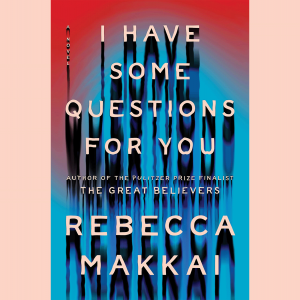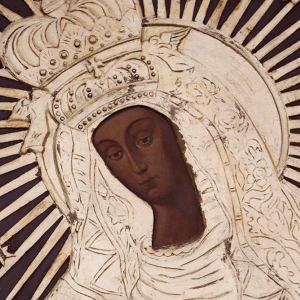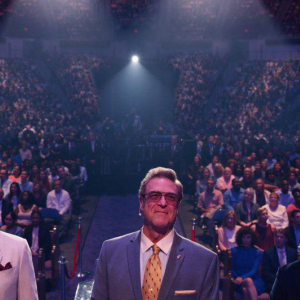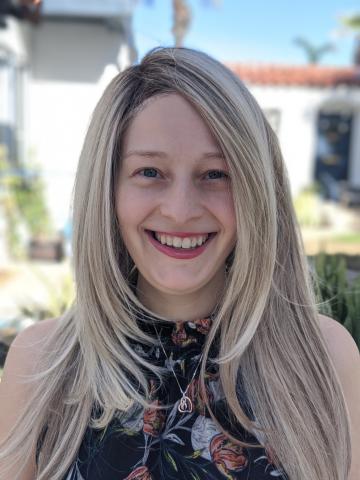
Caroline McTeer is a San Diego-based writer and has been published in Sojourners, The Bitter Southerner, Litro, and elsewhere.
Posts By This Author
Asking Questions About the Past
Rebecca Makkai's latest novel reminds us to interrogate what we thought we knew.
“NOT A SINGLE CELL of his body was the same as it had been in 1995. But he was still himself, just as I was still, despite everything, my teenage self. I had grown over her like rings around the core of a tree, but she was still there.” This reflection is from Bodie Kane, the narrator of Rebecca Makkai’s latest novel, I Have Some Questions for You. The quote captures the ethos of this story in which the main character recalls her past with both urgency and emotional clarity.
Bodie Kane is an LA-based podcaster who has come to teach a mini-mester at Granby, the New Hampshire boarding school she attended for high school. Her students become interested in the case of Thalia Keith — Bodie’s old roommate, who was murdered at Granby when they were both students.
“I think the wrong guy is in prison,” says Bodie’s student Britt — a conviction Bodie comes to share.
The Transgressive Wisdom of Emily Dickinson
The renowned poet was never afraid to ask questions and challenge tradition in her eclectic journey of faith.
WHEN EMILY DICKINSON first read the novel Jane Eyre, she didn’t know the name of its author. At the time, Charlotte Brontë wrote under the pseudonym Currer Bell, and her work was the subject of controversy. The British Quarterly Review referred to Bell as “a person who ... combines a total ignorance of the habits of society, a great coarseness of taste, and a heathenish doctrine of religion” and said, “the tone of mind and thought which has overthrown authority and violated every code human and divine ... is the same which has also written Jane Eyre.”
When Dickinson returned Jane Eyre to the friend who lent it to her, she sent it with a bouquet of box leaves and a note that makes it clear she’d heard the gossip on Bell. She wrote, “If all these leaves were altars, and on every one a prayer that Currer Bell might be saved — and you were God — would you answer it?” Years later, when Brontë died, Dickinson wrote the following elegy: “Oh, what an afternoon for heaven, / When ‘Brontë’ entered there!”
As Dickinson’s biographer Alfred Habegger notes, this elegy not only grants Brontë salvation but also “made heaven the beneficiary.” Even in these brief notes on Brontë, we can see some of the common themes of Dickinson’s poetry. There is the impulse to engage with (and even affirm) the ideas of God and heaven but also the impulse to subvert rigid and exclusive notions of theology.
Experiencing God in All Her Specific, Maternal Power
Teresa Kim Pecinovsky's Mother God and Christena Cleveland's God Is a Black Woman offer different portraits of a feminine God whose powerful love reshapes the world.
Why I Can’t Stop Watching ‘Righteous Gemstones’ Absurd Pastors
Danny McBride’s HBO show The Righteous Gemstones is a dark comedy about corrupt, hyper-wealthy Christian pastors. The Gemstone family runs a famously successful megachurch in South Carolina, but behind the scenes, they evade taxes, snort cocaine, pull knives on their friends, bicker like filthy-mouthed children, and say things like, “You are forgiven for my suspicions of you.” And though they all live in mansions on the same compound, patriarch Eli Gemstone and his three adult children — Jesse, Judy, and Kelvin — generally only come together in spirit when they need to ward off blackmailers, snoops, and evil grifters from their past: anyone who might reveal their secrets or jeopardize the family’s wealth-hoarding.
The Subversive, Sapphic Spiritual Lives of Nuns in ‘Matrix’
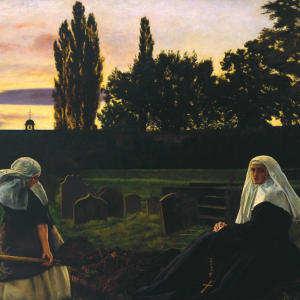
‘The Vale of Rest’ by Sir John Everett Millais, Bt. Oil paint on canvas, 1858-1859. Photo via Tate / CC-BY-NC-ND 3.0 (Unported)
In Lauren Groff’s newest novel, Matrix, monastic life in the High Middle Ages serves as a stunning backdrop for the story of Marie, a nun who feels “her greatness hot in her blood.” Marie arrives at an English abbey as a reluctant teenager, at the appointment of her queen, Eleanor, who expects Marie to become abbess and save the Crown from the public shame of a royal abbey where nuns die of starvation and disease.
How Religion Primes Us to Think God Is On Our Side
I knew there were Christian slaveholders, Christian Nazis, and Christians who opposed the civil rights movement, but in my mind, these people were “Christians” — with scare quotes. These so-called Christians, I imagined, were either conscious hypocrites, using the guise of Christianity to seize and maintain power, or mindless followers of the status quo who never devoted real attention to prayer and scripture.
